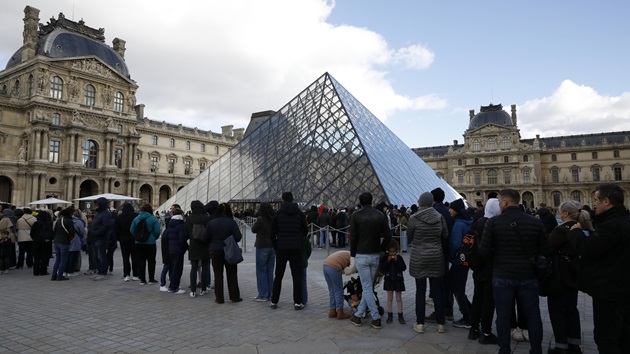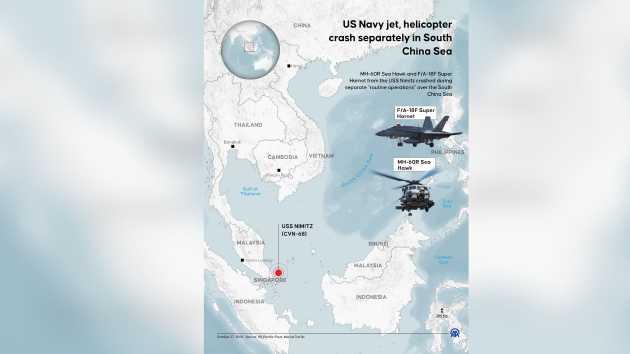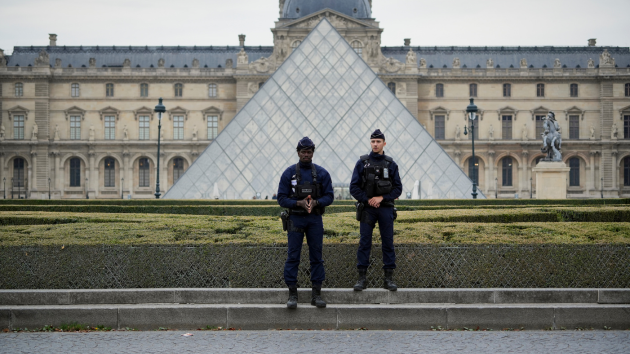UN nuclear watchdog green-lights Fukushima water release plan
Written by ABC Audio ALL RIGHTS RESERVED on July 5, 2023

(TOKYO) — The United Nation’s nuclear watchdog, the International Atomic Energy Agency (IAEA), approved plans by Japan to release water from the Fukushima Daiichi nuclear power plant into the Pacific Ocean on Tuesday.
The plan would see Japan release 1.3 million tons of treated wastewater — the equivalent of 500 Olympic swimming pools — which has been filtered through the Advanced Liquid Processing System (ALPS) from the destroyed Fukushima plant into the Pacific Ocean following the catastrophic earthquake that rocked Japan.
The water, which was used to cool nuclear reactors following the deadly Tohoku earthquake and ensuing tsunami that hit Fukushima on March 11, 2011, is currently being stored in about 1,000 tanks on the site and the majority of the water is currently being used to cool molten fuel, with the remainder coming from rainwater and groundwater that entered the reactor units.
It is set to be released by Japan in a controlled and gradual manner over the next 30 to 40 years.
“Based on its comprehensive assessment, the IAEA has concluded that the approach and activities to the discharge of ALPS treated water taken by Japan are consistent with relevant international safety standards,” announced IAEA Chief Rafael Grossi.
Presenting findings of the IAEA’s two-year safety review, the United Nations body concluded that the release of the water would have “negligible radiological impact to people and the environment.”
Grossi, currently on a three-day visit to Japan, is meeting with senior Japanese officials, including Prime Minister Fumio Kishida, and will be presenting “comprehensive findings” of the IAEA’s final report ahead of the last preparations for the release.
Grossi is also due to visit the Fukushima Daiichi plant to inaugurate an IAEA office at the site as the IAEA has pledged to be committed to engaging with Japan before, during and after the discharges occur.
“That the plan, as it has been proposed and devised, is in conformity with the agreed international standards,” said Grossi speaking to the press following the meeting with Kishida.“If the government decides to proceed with it, the IAEA will be permanently here, reviewing, monitoring, assessing this activity for decades to come.”
Japan’s water release plan has been opposed by China, South Korea and some Pacific Island nations with Mao Ning, China’s Ministry of Foreign Affairs spokesperson, calling on Japan to take seriously “international and domestic concerns and stop forcibly proceeding with its ocean discharge plan.”
Speaking at a Ministry of Foreign Affairs meeting on July 4, Mao Ning cited a Global Times survey which found that 80% of over 11,000 respondents across 11 countries expressed worry, fear and anger over the plan.
Japanese fishing communities have also vocally objected Japan’s plans, fearing the release of the water would harm the reputation of their produce.
“We cannot support the government’s stance that an ocean release is the only solution,” said Masanobu Sakamoto, president of JF Zengyoren, Japan Fisheries Cooperatives, in June.
Anti-nuclear activists have also taken to the streets, rallying outside Tokyo Electric Power Company Holdings in May as they called on Japan to scrap its plans, chanting “don’t nuke the pacific” as they protested.
Kishida has vowed that as a responsible leader in the international community, he won’t allow emissions that have a negative impact on people’s health and the environment in Japan and around the world.
The ALPS process is unable to fully eradicate Tritium — a “naturally occurring radioactive form of hydrogen.” Yet some experts say there is no worry and that Tritium only poses a risk to humans if consumed in large quantities.
“Almost everything is radioactive, including the Pacific Ocean, where tritium accounts for a modest 0.04% of total radioactivity,” Nigel Marks, professor of Physics & Astronomy at Curtin University, said speaking on the release of Fukushima water. “The minuscule amount of extra radiation won’t make the tiniest jot of difference.”
Meanwhile, Japanese regulators have completed their final safety inspection and Tokyo Electric Power Company (TEPCO) is expected to receive a permit to discharge the water in a week.
Officials remain mum on the date they plan to begin releasing the water but have pledged to start the decades-long process this summer.
Copyright © 2023, ABC Audio. All rights reserved.
 KVSP
KVSP 




